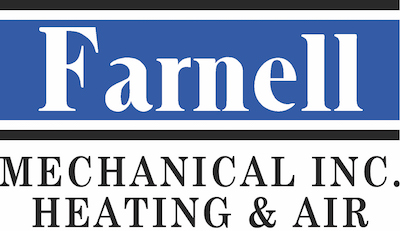
To avoid rising energy costs and work toward a more sustainable life, many homeowners are trying new methods to maintain comfort levels while using less energy. As part of the Inflation Reduction Act, federal tax credits are available for energy-efficient home upgrades, especially HVAC systems like air conditioners. These credits offer significant savings, as long as the homeowners select qualifying equipment and submit the right paperwork.
If you’re concerned the application process might be tedious, we’re offering to help! Farnell Mechanical, Inc. hopes this guide will give you everything you need to earn these HVAC tax credits in 2024. Here’s how to make it happen.
Understanding the HVAC Tax Credits
These valuable tax credits for boosting your home’s energy efficiency are just one intended use of the recent Inflation Reduction Act. Energy costs affect everyone, so helping homeowners upgrade to higher efficiency utilities can benefit everyone. The main intention of these credits is to help pay for high efficiency HVAC equipment and other projects. Two of note are the Residential Clean Energy Credit and the Energy Efficiency Home Improvement Credit.
But keep in mind, to claim your credits, you’ll have to fill out IRS Form 5695. Additionally, this form needs to be submitted during the same tax year the upgrades were installed, not bought.
Energy Efficiency Home Improvement Credit
Through 2032, the Energy Efficiency Home Improvement credit empowers homeowners by offsetting up to $3,200 annually for energy-efficient home upgrades. This amounts to 30% of the total project’s cost. You should be aware that in order to receive the maximum amount, it means making severel investments. For example, you’ll get up to $2,000 for high efficiency heat pump systems. This can be combined with the remaining $1,200 in credits for other eligible upgrades made within the tax year.
While heat pumps are a popular option for the tax credit, high-efficiency furnaces, air conditioners, boilers, and other HVAC systems are still eligible for this tax credit. You should confirm that your choice’s energy efficiency rating is high enough for eligibility.
Residential Clean Energy Credit
The Residential Clean Energy Credit provides 30% savings on a number of other residential clean energy efficiency projects. Eligibility only applies to homeowners looking for new clean energy solutions for their home. While the Home Improvement Credit highlights utilities and HVAC systems, this credit targets renewable energy sources like solar and wind energy.
Some specific items in this tax credit include requiring the installation project to be finished between 2022 and 2032. But at the same time, homeowners can keep the excess credit to reduce future taxes. This is a great way to soften the entry into investing in clean energy.
What Else Is Eligible for These Tax Credits?
Because HVAC systems are one of the biggest portions of your monthly energy costs, these tax credits incentivize the most energy-efficient options. But home energy efficiency can be improved in lots of other ways. Apart from the previously listed HVAC upgrades, {you could also choose|other eligible items include|you also have access to:
- Energy-saving heat pump water heating systems
- Electrical panel upgrades
- Upgraded electrical wiring
- Enhancements to insulation, air sealing, and ventilation
- High-efficiency electric stoves, cooktops, ranges or ovens
- Efficient heat pump clothes drying solutions
- Water boilers
Like the HVAC systems, you’ll need to confirm that your chosen products meet the required energy efficiency ratings.
Three Tips for Making the Most of 2024 HVAC Tax Credits
While any one of those upgrades can boost home energy efficiency, a little planning will ensure they offer the most long-term benefits. Maximize your HVAC tax credits with the following three tips:
- Perform an energy audit to pinpoint valuable enhancements. Rely on professional HVAC assessments for crucial advice.
- Enhance your home's envelope by addressing inefficient windows and doors.
- Explore potential rebates from utility companies for clean energy upgrades. Renewable sources like solar, wind, and geothermal contribute to community power grid sustainability.
- Don’t forget financing options from local service companies, which can help reduce costs even more.
Farnell Mechanical, Inc. Can Help You Secure HVAC Credits for 2024
Partner with local HVAC professionals like Farnell Mechanical, Inc. for help with home energy audits and new installation projects. Our seasoned installers will deliver everything you need for a more energy-efficient home.
